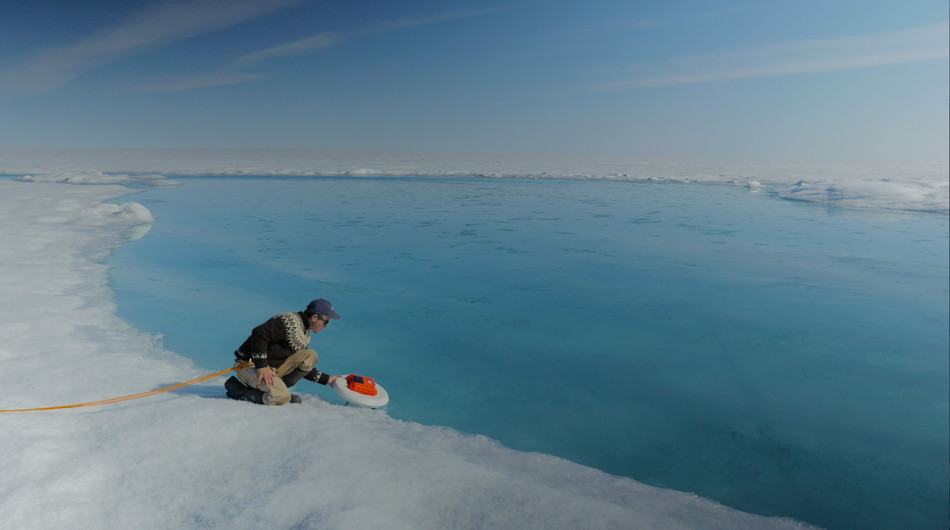Ice sheet reveals surprise
Columbia earth scientists Jacqueline Austermann, Guy J. G. Paxman, and Kirsty J. Tinto have discovered a huge ancient lakebed sealed beneath more than a mile of ice in northwest Greenland. The researchers suspect that the lakebed, which is the first such subglacial basin found anywhere in the world, may contain fossil evidence of past climatic conditions and thus provide important clues about how Greenland’s ice sheet will respond to global warming.
A crowded universe, full of simpletons?
Based on how quickly life emerged on Earth (within a few hundred million years of the planet’s formation) and how long it took for intelligence to subsequently evolve (another four billion years), Columbia astronomer David Kipping has calculated that the universe is likely teeming with life but short on conscious beings.
Designer babies still a no-go
Columbia geneticist Dieter Egli has demonstrated that the powerful gene-editing tool CRISPR-Cas9 is still not safe for use in human embryos. In a series of experiments on early-stage embryos, he has shown that fixing a common blindness-causing gene with CRISPR-Cas9 often destroys neighboring genes.
Keep it real on Facebook
People who resist the temptation to exaggerate their accomplishments on social media in favor of presenting authentic versions of themselves benefit psychologically and are happier overall, according to a study by psychologists Sheena Iyengar and Sandra Matz of Columbia Business School.
The bone makers
Researchers in the laboratory of Columbia biomedical engineer Gordana Vunjak-Novakovic have successfully synthesized bone and cartilage from stem cells and will soon launch a clinical trial in which people with severe facial injuries will receive replacement jawbones grown in the lab.
Making sense of schizophrenia
A team of Columbia neuroscientists led by Steven Siegelbaum has identified a group of brain cells that are responsible for forming social memories. The scientists say the discovery could lead to new treatments for schizophrenia, whose symptoms include extreme social difficulties.
False promises
A widely publicized 2019 pledge by more than one hundred US corporations to adopt socially responsible business practices has turned out to be mere window dressing, according to a study coauthored by Shivaram Rajgopal of Columbia Business School. Rajgopal determined that companies that signed the “Statement on the Purpose of a Corporation” have since committed more labor and environmental violations, on average, than have their competitors.



